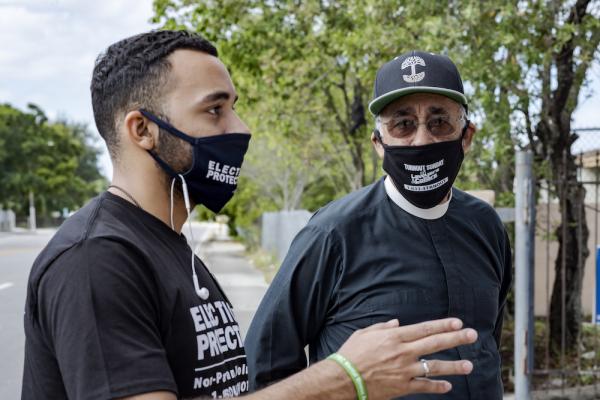Nov 5, 2020
In Alabama, polling sites in low-income areas of Birmingham were relocated with no explanation and very little warning to residents – many of whom typically struggle to acquire a reliable means of transportation. Luckily, poll chaplain commissioner Sheila Tyson was there to galvanize the community and organize free rideshare services to get these voters safely to the polls and back home.
Read the Full Article

Already a subscriber? Login
